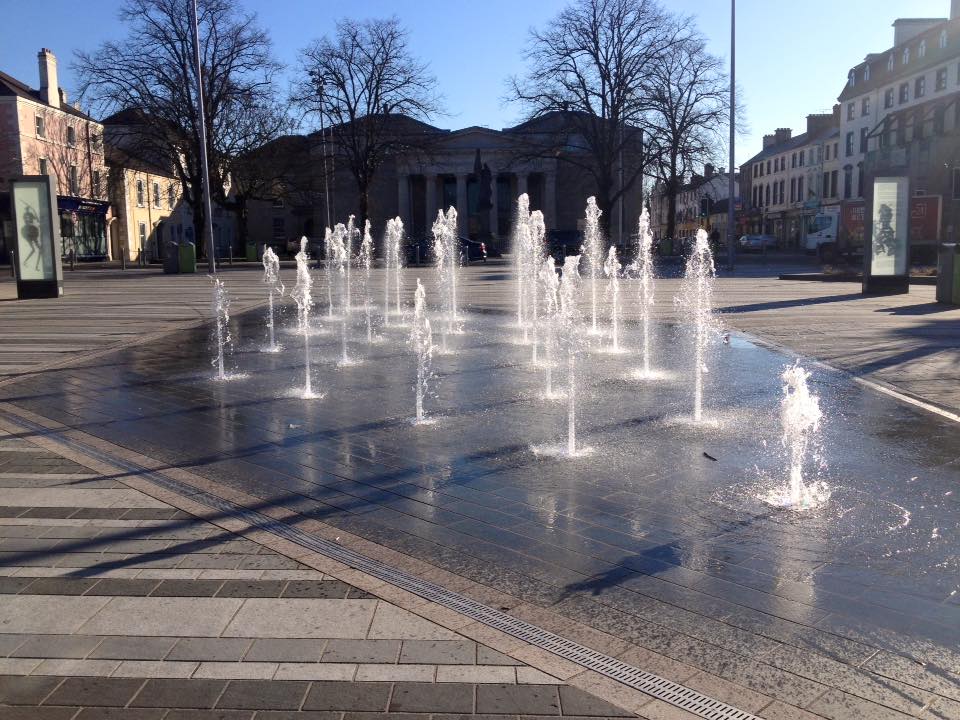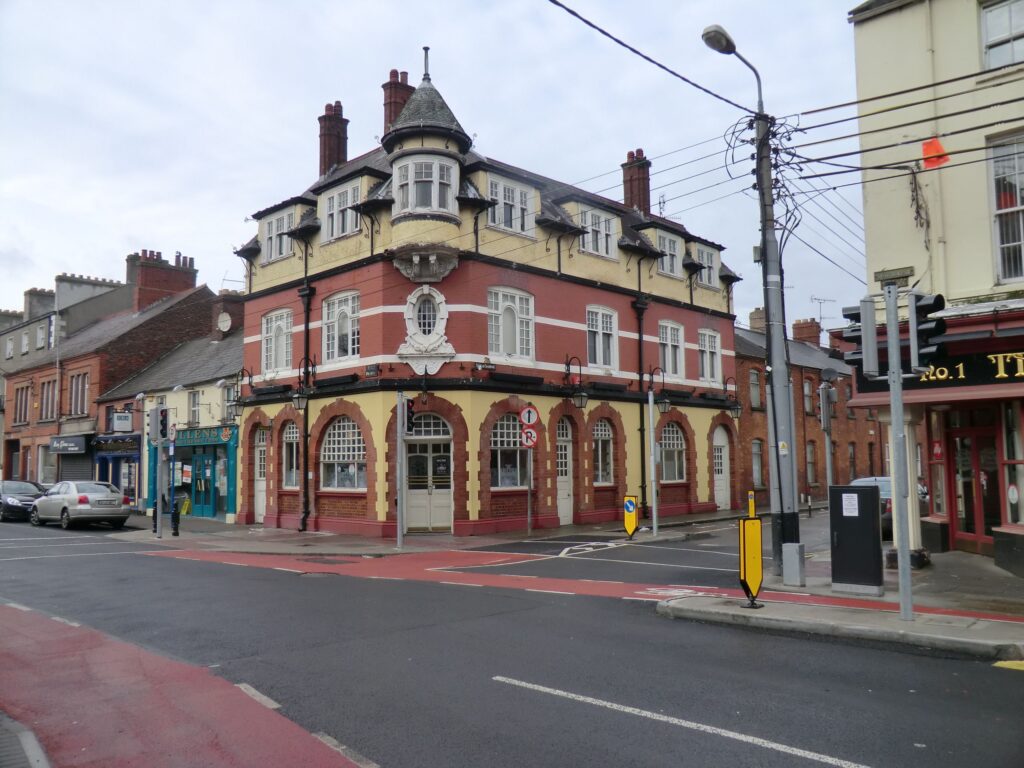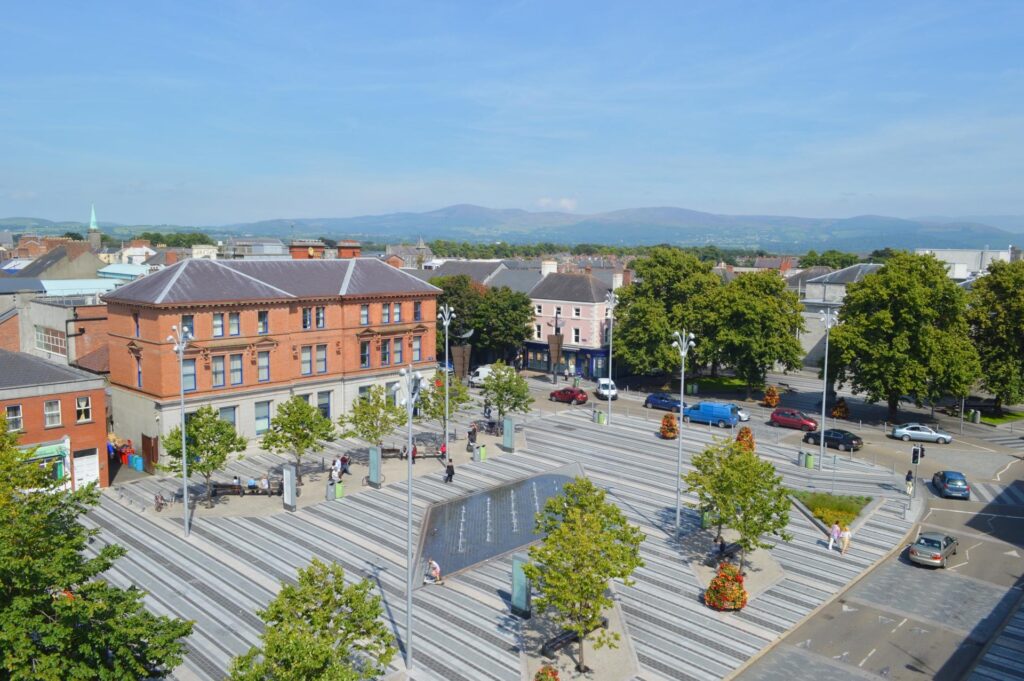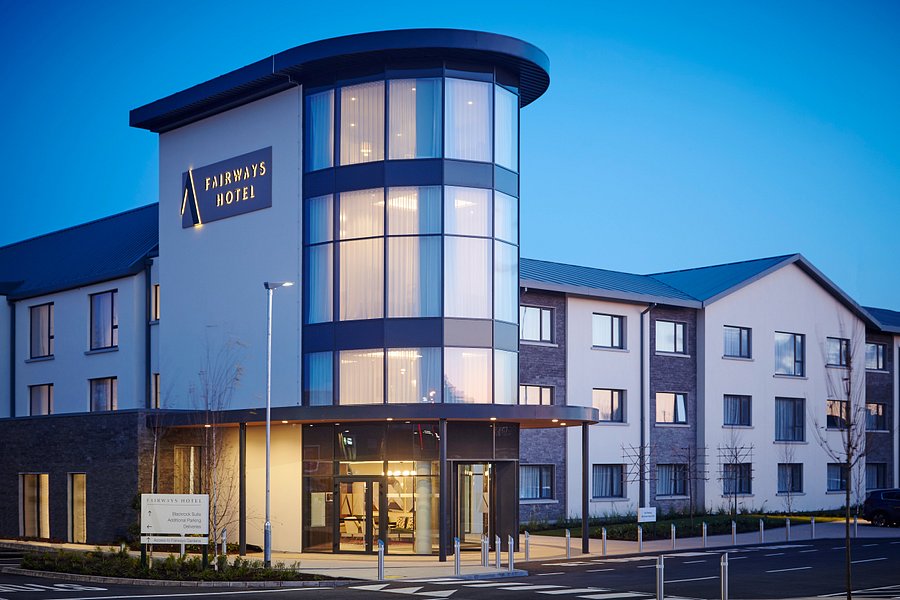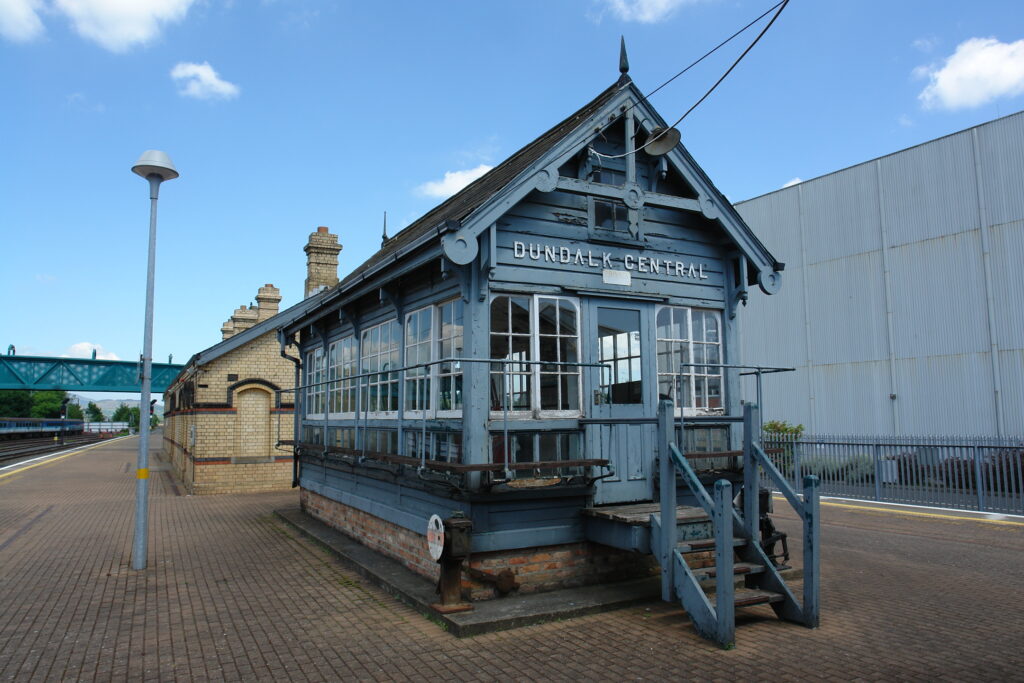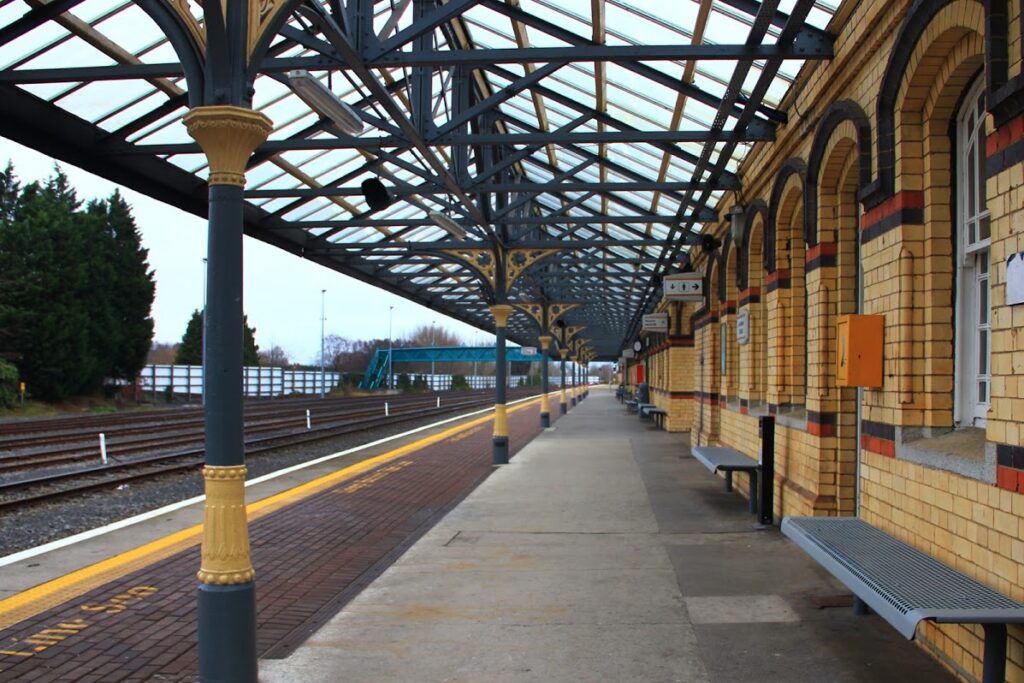Dundalk is the county town (the administrative centre) of the county of Louth in Ireland. The town is on the Castletown River, which flows into Dundalk Bay on the east coast of Ireland. It is near the border with Northern Ireland (which is 7 km from the town centre by road and 3.5 km at the nearest points by air), and is equidistant between Dublin and Belfast (80 km from both). It is the eighth largest urban area in Ireland, with a population of 39,004 as of the 2016 census.
Having been inhabited since the Neolithic period, Dundalk was established as a Norman stronghold in the 12th century following the Norman invasion of Ireland, and became the northernmost outpost of The Pale in the Late Middle Ages. The town came to be nicknamed the “Gap of the North” where the northernmost point of the province of Leinster meets the province of Ulster. The modern street layout dates from the early 18th century and owes its form to James Hamilton (later 1st Earl of Clanbrassil). The legends of the mythical warrior hero Cú Chulainn are set in the district and the motto on the town’s coat of arms is Mé do rug Cú Chulainn cróga (Irish) “I gave birth to brave Cú Chulainn”.
The town developed brewing, distilling, tobacco, textile, and engineering industries during the nineteenth century. It became prosperous and its population grew as it became an important manufacturing and trading centre—both as a hub on the Great Northern Railway (Ireland) network and with its maritime link to Liverpool from the Port of Dundalk. It later suffered from high unemployment and urban decay after these industries closed or scaled back operations both in the aftermath of the Partition of Ireland in 1921 and following the accession of Ireland to the European Economic Community in 1973. New industries have been established in the early part of the 21st century, including pharmaceutical, technology, financial services, and specialist foods.
There is one third-level education institute—Dundalk Institute of Technology. The largest theatre in the town, An Táin Arts Centre, is in the Town Hall, and the restored buildings of the nearby former Dundalk Distillery house both the County Museum Dundalk and the Louth County Library. Sporting clubs include Dundalk Football Club (who play at Oriel Park), Dundalk Rugby Club, Dundalk Golf Club, and a number of Gaelic football clubs. Dundalk Stadium is a horse and greyhound racing venue and is Ireland’s only all-weather horse racing track.
Tourism
Historically, the border region has not seen the same level of tourism as Dublin or the Atlantic coast regions of Ireland, which was primarily the result of the Troubles and an associated lack of marketing. This began to change in the mid-1990s because of the start of the Northern Ireland peace process, and the increase in government investment in tourism made possible by the ‘Celtic Tiger‘ period of economic expansion. The area has since seen a growth in visitor numbers, with 172,000 foreign and 179,000 domestic visitors to Louth recorded in 2017.
The Dundalk / North Louth region is marketed as part of the ‘Ireland’s Ancient East’ campaign. The ‘ancient east’ encompasses Ireland’s coast from the border with Northern Ireland at Carlingford Lough to Kinsale in County Cork; inland as far as the River Shannon. In contrast to the Wild Atlantic Way, which focuses on landscape, the ‘Ireland’s Ancient East’ campaign is more focused on history and heritage. Louth is marketed as the ‘Land of Legends’, a campaign which also refers to a “rich and ancient history and heritage” and seeks to increase the number of visitors to the region “by capitalising on Co Louth’s unique location within Ireland’s Ancient East, as the hub for the Boyne Valley and the Cooley, Mourne and Gullion Regions”
Culture[edit]
Music and arts
Dundalk has two centres for the arts—An Táin Arts Centre, an independent arts space in the former Táin Theatre, Town Hall, Crowe Street; and The Oriel Centre in the former Dundalk Gaol, a regional centre for Comhaltas Ceoltóirí Éireann. The Oriel Centre is a resource centre and performance space, and has facilities for teaching, archives, recording, rehearsal, and performance. The Spirit Store, located at George’s Quay in the Port of Dundalk, is a gig venue in the town.
Dundalk Institute of Technology Department of Creative Arts, Media and Music has a number of groups and ensembles, including the Ceol Oirghiallla Traditional Music Ensemble, the DkIT Choir, the Music Theatre Group, the Oriel Traditional Orchestra and the Fr. McNally Chamber Orchestra.
The Cross Border Orchestra of Ireland (CBOI) is a youth orchestra based at Coláiste Chu Chulainn, Dundalk. It was started as a peace initiative. Since 1996, it has toured internationally and has played at venues such as Carnegie Hall and the Royal Albert Hall.
The Dundalk Brass Band was established in 1976 and comprises 25-30 members who perform a cross-section of big band and brass music.
The town has two photography clubs, Dundalk Photographic Society and the Táin Photographic Club.
Festivals
The Dundalk Show (also known as the Dundalk Agricultural Show and the Co. Louth Agricultural Show) has run since the 19th century at a number of locations. It was originally held at the Dundalk racecourse in Dowdallshill, before moving to the Fair Green, the grounds of St Mary’s College, Bellingham Castle, and latterly Bellurgan Park.
In 2019, the town had its inaugural urban art festival, ‘Seek Dundalk’. The street murals painted included Edward Bruce, the engineer Peter Rice, and Cú Chulainn.
Other festivals include the Frostival Winter Festival, held at the end of November, and the St. Gerard Majella Annual Novena, an annual religious festival held over nine days in St. Joseph’s Redemptorist Church in Dundalk. It runs from 8 to 16 October. A pattern takes place on 15 August at Ladywell Shrine, during the Feast of the Assumption. The Knockbridge Vintage Club also run public events during the year.
The Dundalk Maytime Festival was the town’s largest festival and ran for 40 years starting in 1965. It started out as a ‘Grape and Grain’ festival before later centring around amateur drama. It eventually ceased because of difficulties in securing sponsorship.
Within the wider Dundalk Municipal District, festivals and events include: the Arcadian Field Music and Arts Festival—a three-day boutique festival begun in 2016 on the grounds of Bellurgan Park, the Táin March festival, established in 2011—a walking festival held in June, which seeks to commemorate the legendary Cattle Raid of Cooley (Táin Bó Cúailnge) the All-Ireland Poc Fada Championship held every year since 1960 on Annaverna Mountain on the Cooley Peninsula, and the Brigid of Faughart Festival (held annually in the first week of February). The town of Carlingford also has a number of festivals and events during the year.
